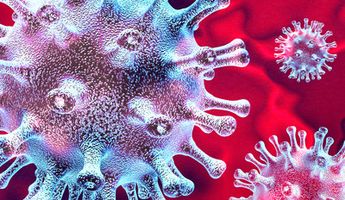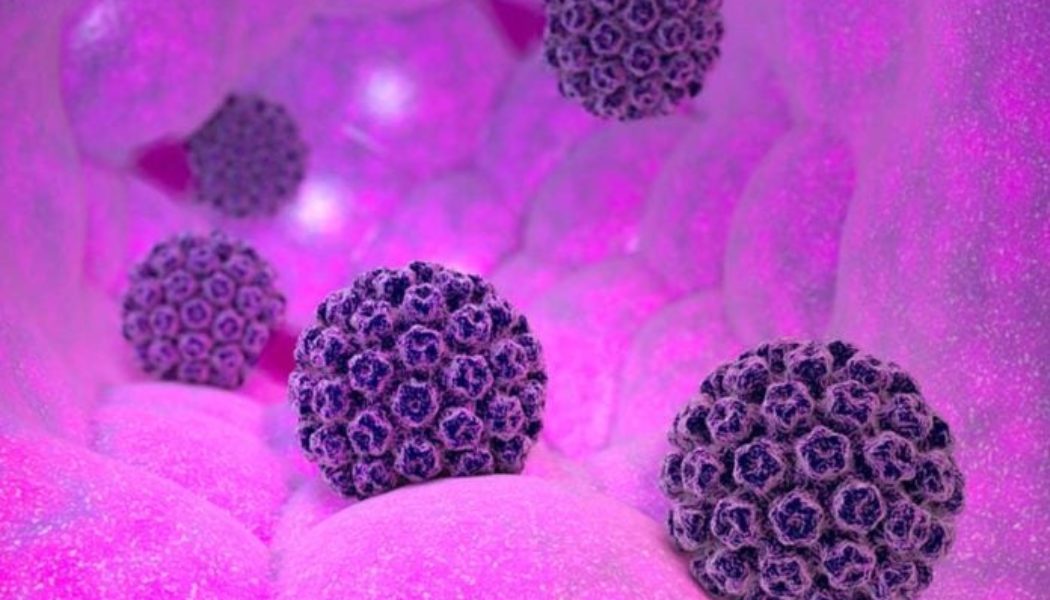Coronavirus Treatment in Romania
Search and Compare the Best Clinics and Doctors at the Lowest Prices for Coronavirus Treatment in Romania

Find the best clinics for Coronavirus Treatment in Romania
No pricing info available
Malaysia offers the best prices Worldwide
Price: $ 64
From 33 verified reviews
Diana Maria, 25 August 2020
The staff is very nice, and the doctors are very attentive to the patients, at least in my case.
- Home
- Romania
WHY US?
At Medijump, we're making medical easy. You can search, compare, discuss, and book your medical all in one place. We open the door to the best medical providers worldwide, saving you time and energy along the way, and it's all for FREE, no hidden fees, and no price markups guaranteed. So what are you waiting for?

Free

Best Price

Widest Selection

Risk-Free
What you need to know about Coronavirus Treatment in Romania

Late 2019, authorities identified a new coronavirus outbreak in China that has now reached other countries. The virus is known as severe acute respiratory syndrome coronavirus 2 (SARS-CoV-2), while the disease is called coronavirus disease 2019 (COVID-19) and also known as Wu Han Virus, after the city, it is believed to have originated from. If you have the symptoms of COVID-2019 or you have possibly been exposed to the virus, contact your doctor immediately to get proper help and advice and seek Coronavirus Testing.
What does the Procedure Involve?
There are currently no antiviral medications recommended to treat COVID-19. Treatment is mostly aimed at relieving symptoms, which may include cough syrup or medication, pain relievers, rest, and fluid intake. If your doctor thinks that you can be treated at home, you will be given special instructions, such as isolating yourself as much as possible from anyone (including family) and staying at home for a period of time. In severe cases, you may need to be treated in the hospital and stay in isolation away from other people until you have recovered.
How Long Should I Stay in Romania?
The length of stay in the hospital and in Romania can vary. If you are in Hospital, at Home, on Holiday you will be quarantined and you will continue to undergo throat swabs for the virus for 5 to 14 days. This is to determine if you are still contagious and will mean you will need to stay in the country and avoid being in close contact with anyone for at least two weeks while you recover.
What's the Recovery Time?
Recovery time of COVID-19 varies, depends on the severity of the disease, your overall health, and your age. According to Harvard Health, people who have mild symptoms may recover within a few days, while those with pneumonia will need more time (ranging from days to weeks). In severe, life-threatening cases, it may take months for the person to recover.
What About Aftercare?
Since it is common for viruses to exist in low levels within the body even after recovery, you will still need to be careful, particularly in your household setting. Do not share drinks or food and ensure that you wash your hands frequently. Always take the necessary precautions to avoid spreading the disease while at home or anywhere else. Bear in mind that recovery does not necessarily make you immune to the disease.
What's the Success Rate?
Little is known about the virus. Investigations and research about the virus are still ongoing, so the exact number of success rates and mortality rates are likely to change further as more cases are confirmed. Several groups of people have a high risk of developing complications due to the disease, including very young children, people aged 65 or older, and women who are pregnant. Those with any pre-existing health conditions are also at high risk.
Are there Alternatives to Coronavirus Treatment?
There are currently no alternatives to coronavirus treatment. There is also no vaccine available to prevent infection. However, prevention is best. Always follow the standard precautions, such as washing your hands with soap and water frequently.
What Should You Expect Before and After the Procedure
Before treatment, you may experience symptoms of the coronavirus and you may have spread it to other people. Theirs is also a small chance that the disease may become life-threatening. After Isolation and rest, any symptoms should be relieved and your chance of spreading the virus to other people will be reduced.
Whilst the information presented here has been accurately sourced and verified by a medical professional for its accuracy, it is still advised to consult with your doctor before pursuing a medical treatment at one of the listed medical providers
No Time?
Tell us what you're looking for and we'll reachout to the top clinics all at once
Enquire Now

Popular Procedures in Romania
Prices Start From $22,731

Recommended Medical Centers in Romania for Coronavirus Treatment

- Interpreter services
- Translation service
- Religious facilities
- Medical records transfer
- Medical travel insurance
- Health insurance coordination
- TV in the room
- Safe in the room
- Phone in the room
- Private rooms for patients available

- Interpreter services
- Translation service
- Religious facilities
- Medical records transfer
- Medical travel insurance
- Health insurance coordination
- TV in the room
- Safe in the room
- Phone in the room
- Private rooms for patients available

- Interpreter services
- Translation service
- Religious facilities
- Medical records transfer
- Medical travel insurance
- Health insurance coordination
- TV in the room
- Safe in the room
- Phone in the room
- Private rooms for patients available

- Interpreter services
- Translation service
- Religious facilities
- Medical records transfer
- Medical travel insurance
- Health insurance coordination
- TV in the room
- Safe in the room
- Phone in the room
- Private rooms for patients available

- Interpreter services
- Translation service
- Religious facilities
- Medical records transfer
- Medical travel insurance
- Health insurance coordination
- TV in the room
- Safe in the room
- Phone in the room
- Private rooms for patients available

- Interpreter services
- Translation service
- Religious facilities
- Medical records transfer
- Medical travel insurance
- Health insurance coordination
- TV in the room
- Safe in the room
- Phone in the room
- Private rooms for patients available

- Interpreter services
- Translation service
- Religious facilities
- Medical records transfer
- Medical travel insurance
- Health insurance coordination
- TV in the room
- Safe in the room
- Phone in the room
- Private rooms for patients available

- Interpreter services
- Translation service
- Religious facilities
- Medical records transfer
- Medical travel insurance
- Health insurance coordination
- TV in the room
- Safe in the room
- Phone in the room
- Private rooms for patients available

- Interpreter services
- Translation service
- Religious facilities
- Medical records transfer
- Medical travel insurance
- Health insurance coordination
- TV in the room
- Safe in the room
- Phone in the room
- Private rooms for patients available

- Interpreter services
- Translation service
- Religious facilities
- Medical records transfer
- Medical travel insurance
- Health insurance coordination
- TV in the room
- Safe in the room
- Phone in the room
- Private rooms for patients available
Coronavirus Treatment in and around Romania
Introduction
Situated at the crossroads of Central, Eastern, and Southeastern Europe, Romania is a country of contrasts. From its medieval towns and castles, nature, and wildlife, to its rich cultural heritage and amazing food, this country continues to amaze its visitors. In recent years, Romania has become a flourishing medical tourism destination. Due to its low prices, well-trained medical staff, highly skilled doctors, and amazing medical centers, the country attracts an ever-increasing number of international medical tourists. Dental work is the number one reason medical tourists travel to this country, closely followed by cosmetic surgeries. Most medical tourists come from other European countries, such as the UK, Germany, other Western European countries, and the US.
Popular Cities and Regions in Romania
Almost every city in Romania has its fair share of amazing tourist attractions and skilled specialists. The most popular one is the capital of the country, Bucharest. This dynamic city boasts excellent museums, trendy cafes, and beautiful parks. Tourists usually flock to the Palace of Parliament, the Statue of Emperor Trajan, Cişmigiu Garden, the Romanian Athenaeum, and the Museum of the Romanian Peasant. Besides Bucharest, one of the most popular cities in the country is Brasov which is located in Transylvania; tourists usually come to this city as their base for trips to “Dracula’s castle.” The city is filled with charming medieval streets, great hiking spots, and a beautiful historic center. The second-largest city in Romania, Cluj-Napoca, is also famous for its bohemian cafes, amazing medical centers, and music festivals.
Transport in Romania
Henri Coandă International Airport is the busiest airport in Romania. It serves flights to various major cities in Europe, Africa, and the Middle East. Getting around Romania with domestic flights is fast, but can be expensive. The most common way to travel is by bus and maxi taxi (minibus), which reaches even the smallest towns.
Visas in Romania
While Romania is not yet part of the Schengen Area, the country’s visa policy is based on the Schengen acquis. Therefore, citizens of 62 countries, including the US and Australia, can visit and stay in the country for up to 90 days without a visa. Citizens of other countries will need a visa to enter. Those who already have a Schengen visa may enter the country.
Weather in Romania
Spring from March to May has fairly mild temperatures and pleasant weather. Summer, starting from June to August, is usually dry, sunny and sweltering. Autumn comes in September and ends in November. It brings enjoyable temperatures, but it is also the rainy season in the country. Winter, from December to February, can get quite cold and harsh with frequent snowfall.
Additional Info
- Local Currency: The currency is the Romanian leu (RON). 1 USD is approx. 4.7 RON.
- Money & Payments: ATMs can be found in major cities and smaller towns. Credit cards are widely accepted in restaurants and hotels. Tipping is expected in restaurants, hotels, etc.
- Local Language: There are several spoken languages in Romania. However, Romanian is the most spoken language. English is also spoken by around 31% of the population.
- Local Culture and Religion: Romania is a secular state with no state religion. However, Christianity is the biggest religion. Islam, Paganism, and other religions are also present.
- Public Holidays: New Year’s Day, Descent of the Holy Spirit, National Day, and Christmas Day are some of the most celebrated public holidays.
Popular Searches
- Plastic Surgery in Thailand
- Dental Implants in Thailand
- Hair Transplant in Thailand
- Breast Augmentation Thailand
- Gastric Sleeve in Thailand
- Gender Reassignment Surgery in Thailand
- Laser Hair Removal in Bangkok
- Botox in Bangkok
- Dermatology in Bangkok
- Breast Augmentation in Bangkok
- Coolsculpting in Bangkok
- Veneers in Turkey
- Hair Transplant in Turkey
- Rhinoplasty in Turkey
- Stem Cell Therapy in Mexico
- Rhinoplasty in Mexico
- Liposuction in Mexico
- Coolsculpting in Tijuana
- Rhinoplasty in Korea
- Scar Removal in Korea
- Gastric Sleeve in Turkey
- Bone Marrow Transplant in India
- Invisalign in Malaysia
- Plastic Surgery in the Dominican Republic
- Tummy Tuck in the Dominican Republic
- Plastic and Cosmetic Surgery in Poland
- Rhinoplasty in Poland
- Hair Implant in Poland
- Dental Implants in Poland
- IVF in Turkey
